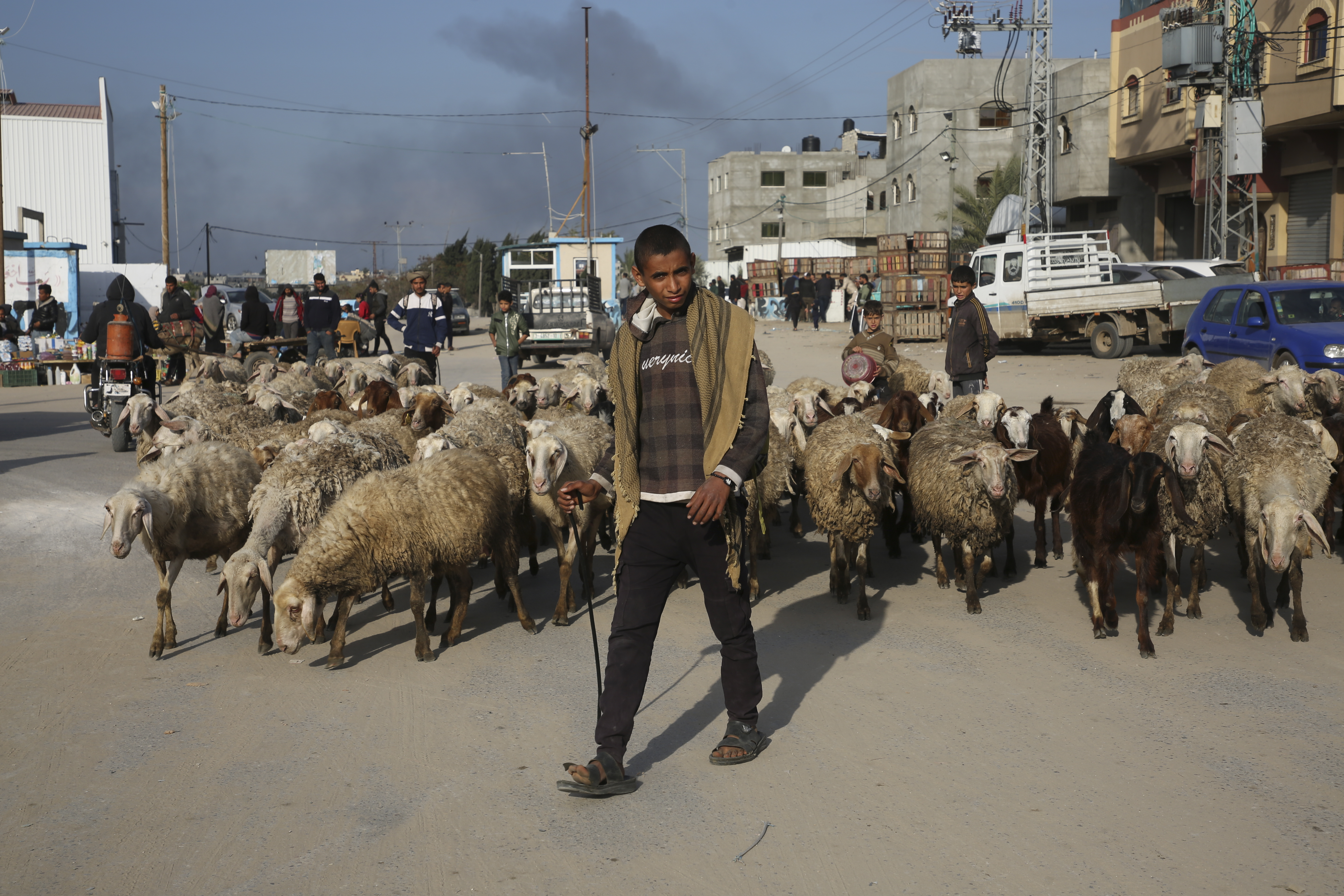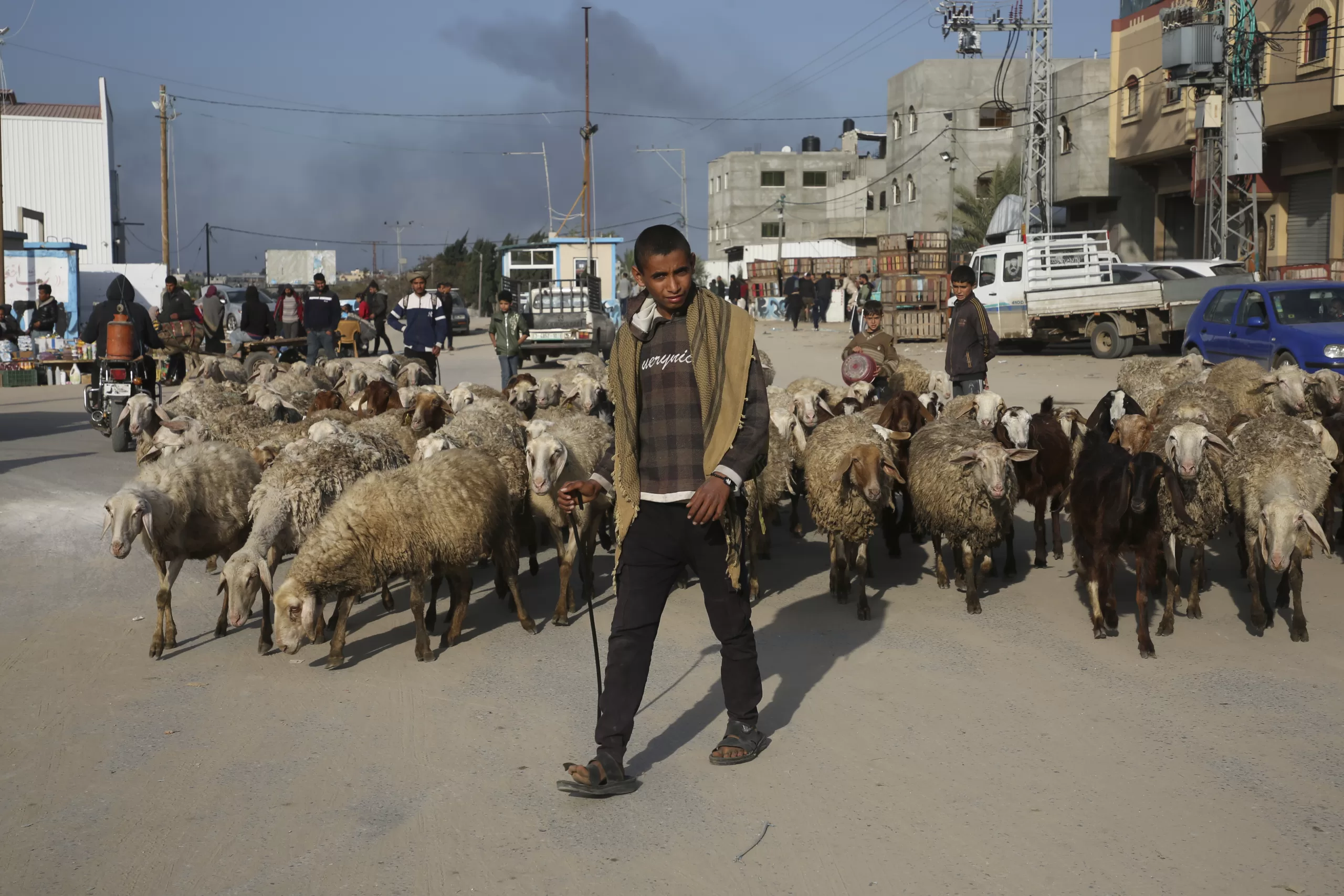
Gaza’s Health Ministry spokesperson Ashraf al-Qidra said Israel had launched a “massive incursion” with heavy shooting that wounded many of the displaced people who had sheltered there. He said the military had ordered medics to move all patients into an older building that was not properly equipped for their treatment.
“Many cannot evacuate, such as those with lower limb amputations, severe burns, or the elderly,” he said in an interview with the Al Jazeera network.
Separately, Israeli airstrikes killed at least 13 people in southern Lebanon on Wednesday, 10 civilians — mostly women and children — and three fighters from the Lebanese militant group Hezbollah, an ally of Gaza’s Hamas militants. The strikes came just hours after a rocket attack from Lebanon killed an Israeli soldier in what was the deadliest of daily exchanges of fire along the border since the Oct. 7 start of the war in Gaza. It also underscored
the risks of a broader conflict.
Negotiations over a cease-fire in Gaza
appear to have stalled, and Israeli Prime Minister Benjamin Netanyahu has vowed to
continue the offensive until Hamas is destroyed and scores of hostages taken during the Oct. 7 attack that sparked the war are returned.
Scenes of panic in a hospital ward
Nasser Hospital, in the southern city of Khan Younis, has been the latest focus of operations that have gutted Gaza’s health sector as it struggles to treat scores of patients wounded in daily bombardments.
Video of the aftermath of the strike showed medics scrambling to wheel patients on stretchers through a corridor filled with smoke or dust. A medic used a cellphone flashlight to illuminate a darkened room where a wounded man screamed out in pain as gunfire echoed outside. The Associated Press could not authenticate the videos but they were consistent with its reporting.
Dr. Khaled Alserr, one of the remaining surgeons at Nasser Hospital, told the AP that the seven patients hit early Thursday were already being treated for past wounds. On Wednesday, a doctor was lightly wounded when a drone opened fire on the upper stories of the hospital, he said.
“The situation is escalating every hour and every minute,” he said.
The Israeli military said Wednesday that it had opened a secure corridor for displaced people to leave the hospital but would allow doctors and patients to remain there. Videos circulating online showed scores of people walking out of the facility on foot carrying their belongings on their shoulders.
The military had ordered the evacuation of Nasser Hospital and surrounding areas last month. But as with other health facilities, medics said patients were unable to safely leave or be relocated, and thousands of people displaced by fighting elsewhere remained there. Palestinians say nowhere is safe in the besieged territory, as Israel continues to carry out strikes in all parts of it.
“People have been forced into an impossible situation,” said Lisa Macheiner of the aid group Doctors Without Borders, which has staff in the hospital.
“Stay at Nasser Hospital against the Israeli military’s orders and become a potential target, or exit the compound into an apocalyptic landscape where bombings and evacuation orders are a part of daily life.”
No end in sight to the monthslong war
The war began when Hamas militants burst through Israel’s formidable defenses on Oct. 7 and rampaged through several communities, killing some 1,200 people and
taking another 250 hostage. More than 100 of the captives were freed during a cease-fire last year in exchange for 240 Palestinian prisoners.
Around 130 captives remain in Gaza, a fourth of whom are believed to be dead. Netanyahu has come under intense pressure from families of the hostages and the wider public to make a deal to secure their freedom, but his far-right coalition partners could bring down his government if he is seen as being too soft on Hamas.
Israel responded to the Oct. 7 attack by launching
one of the deadliest and most destructive military campaigns in recent history. Over 28,000 Palestinians have been killed, 80% of the population have fled their homes and a quarter are starving amid a worsening humanitarian catastrophe. Large areas in northern Gaza, the first target of the offensive,
have been completely destroyed
Hamas has continued to attack Israeli forces in all parts of Gaza, and says it will not release all the remaining captives until Israel ends its offensive and withdraws. Hamas is also demanding the release of a large number of Palestinian prisoners, including top militants.
Netanyahu has rejected those demands, calling them “delusional,” and says Israel will soon expand its offensive into Gaza’s southernmost city of Rafah, on the Egyptian border. Over half of Gaza’s population of 2.3 million
has sought refuge in Rafah after fleeing fighting elsewhere in the coastal enclave.
At least 28,576 Palestinians have been killed since the war began, mostly women and children, according to Gaza’s Health Ministry, which does not distinguish between civilians and combatants. Over 68,000 people have been wounded in the war.
In northern Israel, meanwhile, a rocket attack killed a female soldier and wounded eight people when one of the projectiles hit a military base in the town of Safed on Wednesday. Israel carried out airstrikes in southern Lebanon in response that killed three Hezbollah fighters and 10 civilians, including six women and three children.
Israel and Hezbollah have traded fire along the border nearly every day since the start of the war in Gaza. Hezbollah has not claimed responsibility for Wednesday’s rocket attack.
